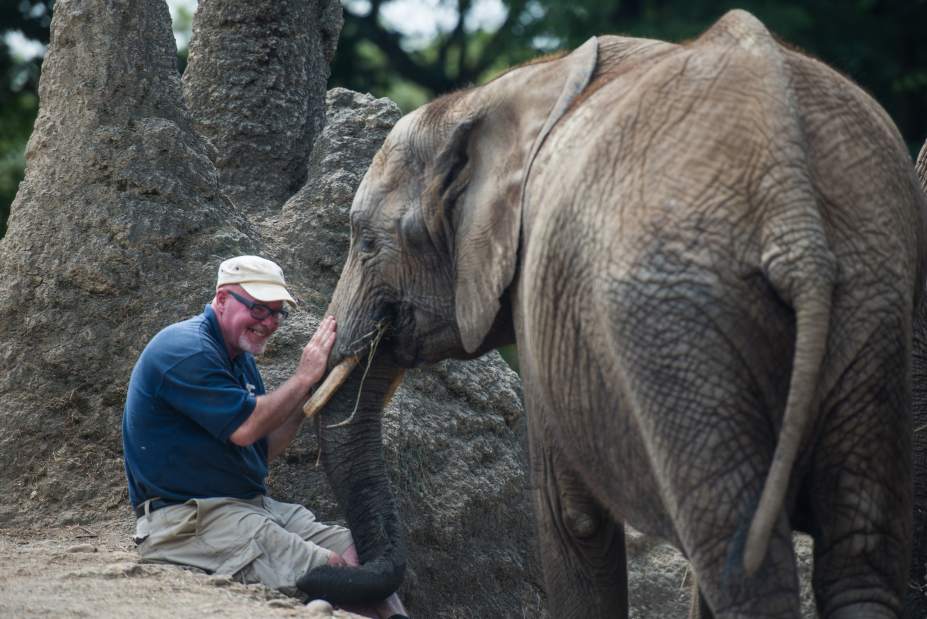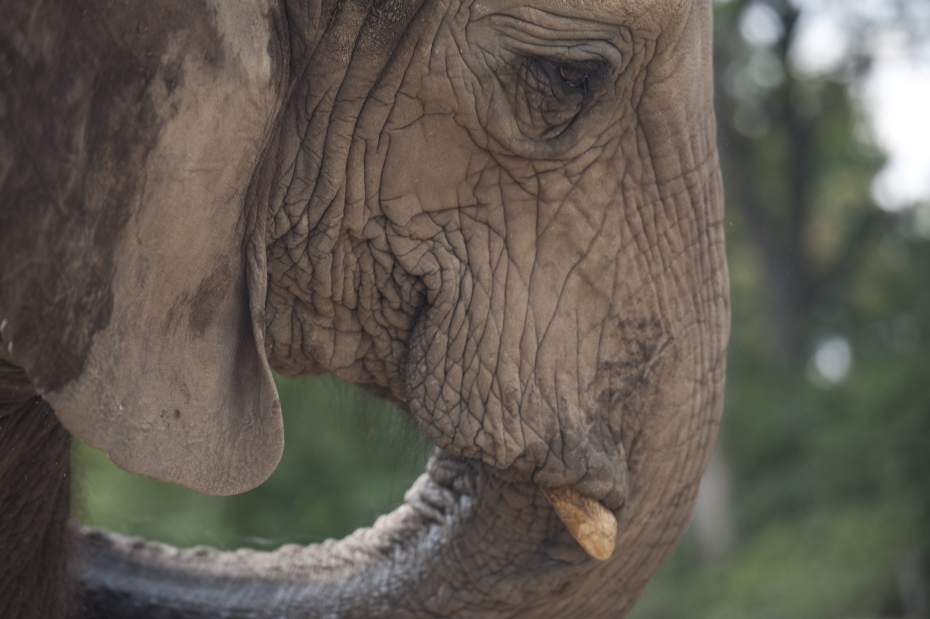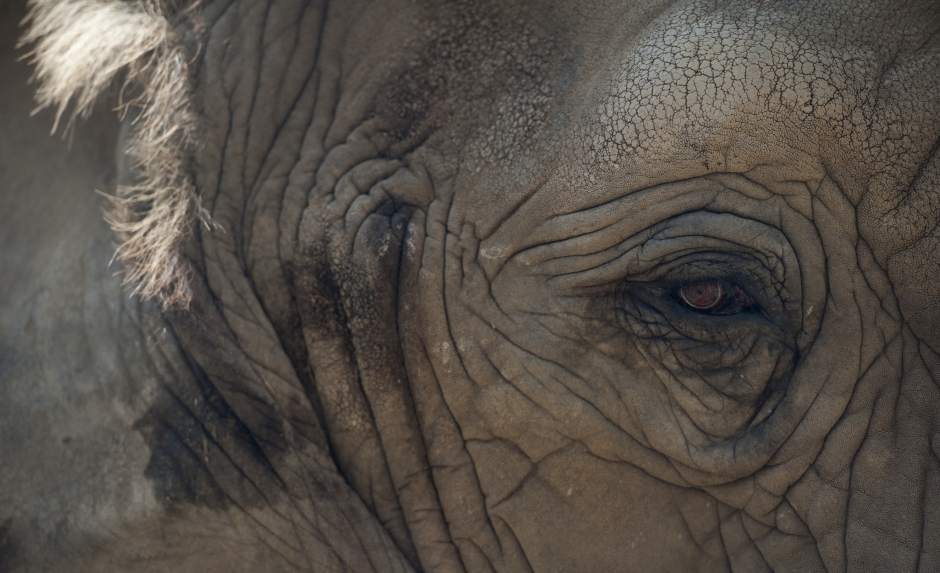Pittsburgh Zoo rejects group's elephant safety procedures
Elephants at the Pittsburgh Zoo & PPG Aquarium follow Willie Theison around like puppies.
Theison, the zoo's elephant program manager, says the animals know him and trust him. He built that bond through years of interaction and said it allows him and other keepers to approach when the animals are stressed and most dangerous.
“If they're ill, if they're injured, we can go in,” said Theison, who has worked with elephants for 37 years, 24 of them at the Highland Park zoo. “(When they're ill), that's not the time to go in and build up a relationship.”
Theison and other elephant keepers at the Pittsburgh zoo said Friday that they strongly disagree with safety rules adopted by the Association of Zoos & Aquariums that require keepers to tend elephants from behind protective barriers.
The zoo opted to sever ties with the national accrediting group rather than abide by the rules, which say keepers can share unrestricted space with elephants only when they're tending to calves or older elephants, giving medical care, helping with births and transporting them.
“I just feel I get a better relationship with them by working with them,” said Lisa Caruso, the lead keeper and the only person other than Theison permitted by the zoo to be alone with elephants.
“The more we're around them, you get to know their personalities, and you know when not to get yourself into a dangerous situation.”
Barbara Baker, president and CEO of the Pittsburgh Zoo, estimated that keepers are around the animals without barriers about 5 percent of the time. The rest of the time, elephants are in their stalls or a large pen for public exhibition.
Three elephants — Angeline, Nan and Tasha — greeted Theison with a throaty rumbling when he brought a bale of hay to the outdoor exhibition area. They followed him, swinging their trunks as he carried the hay. One elephant grabbed a large piece of the bale and dropped it in a pond inside the enclosure before starting to eat.
“She likes to dip her food in water before she eats,” Baker said.
The zoo keeps six African elephants for its public exhibit and five at its International Conservation Center in Somerset County for breeding and conservation purposes.
It has the largest breeding herd of African elephants in North America.
Baker said unrestricted access permits more successful breeding and births, noting that the world's African elephant population has decreased from about 10 million 20 years ago to fewer than 400,000.
She cited statistics from the Association of Zoos & Aquariums that show more elephants are born at institutions permitting unrestricted access.
Ninety-seven African and Asian elephants have been born in zoos over the past 20 years and lived more than one month, she said. Eighty-eight percent of them were born at zoos that permitted unrestricted contact.
“To do what we need to do to save elephants, we need to be able to share space with them,” Baker said.
She acknowledged risks involved with tending roughly 4-ton elephants.
In 2002, Pittsburgh Zoo employee Mike Gatti was killed when an elephant head-butted and pinned him to the ground while he was walking it in a pen.
“Every single one of our animal staff understands there's a risk because they're working with wild animals,” Baker said, adding that employees can choose whether to get into a pen with an animal.
Baker acknowledged the loss of Association of Zoos & Aquariums accreditation has caused some problems, but “every once in awhile you have to stand up for what you believe in.”
The zoo might lose a state grant worth $177,000 a year because accreditation is required by the Pennsylvania Zoological Council. Baker, a longtime council member, said she is working to amend council bylaws to allow the zoo to receive the grant once again.
She said the zoo lost a $5,000 education grant from the Association of Zoos & Aquariums, but is paying for the program from its budget.
Reports that the zoo can no longer participate in a sea turtle protection program as a result of dropped the accreditation are incorrect, she said.
The North Carolina Aquariums at Roanoke Island will no longer send turtles to Pittsburgh, but the zoo will continue the Sea Turtle Second Chance program through other sources.
“Even though we won't get turtles from them anymore, there are plenty of sea turtles that need help,” she said. “So there's no loss of sea turtles.”
Bob Bauder is a staff writer for Trib Total Media. He can be reached at 412-765-2312 or bbauder@tribweb.com.



